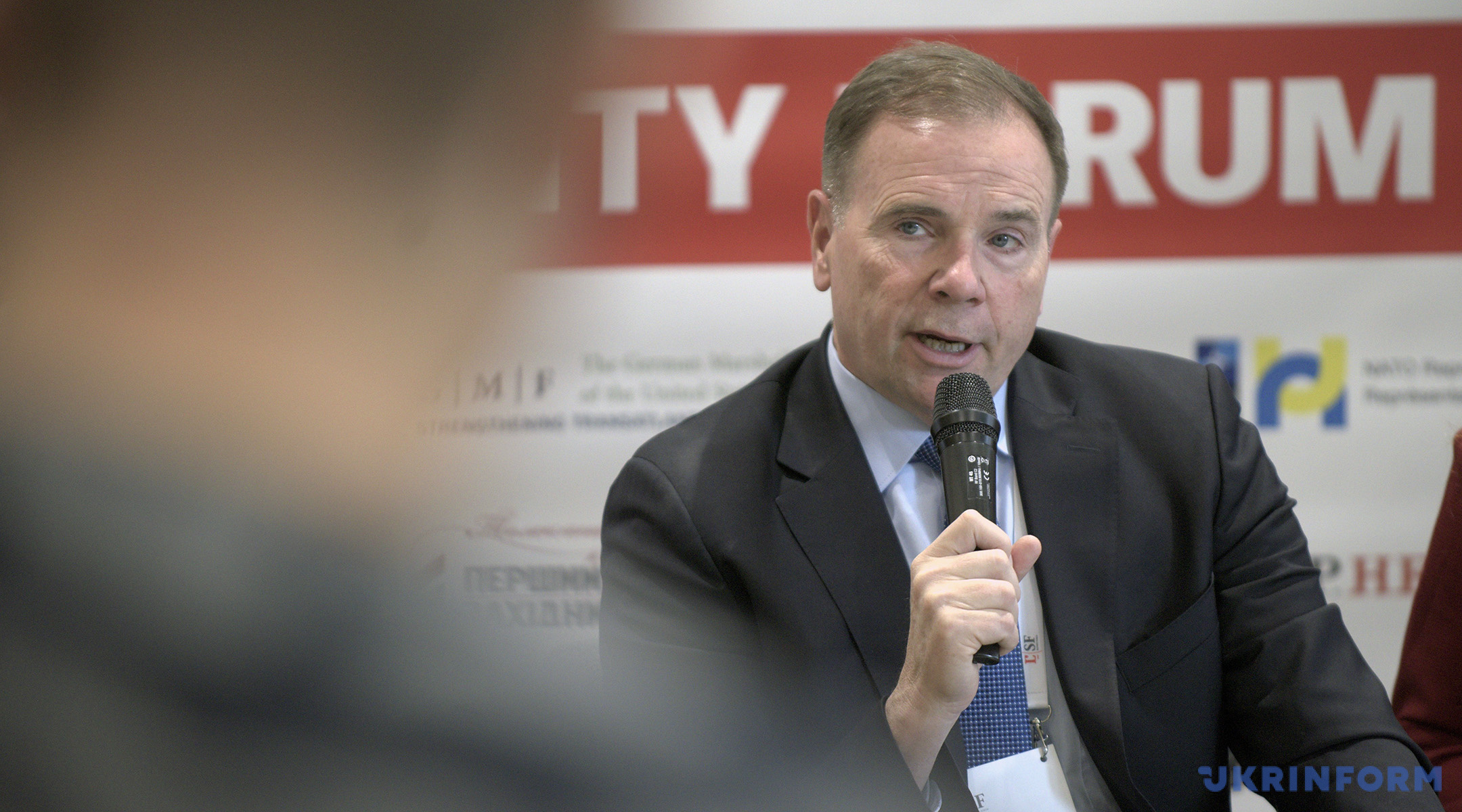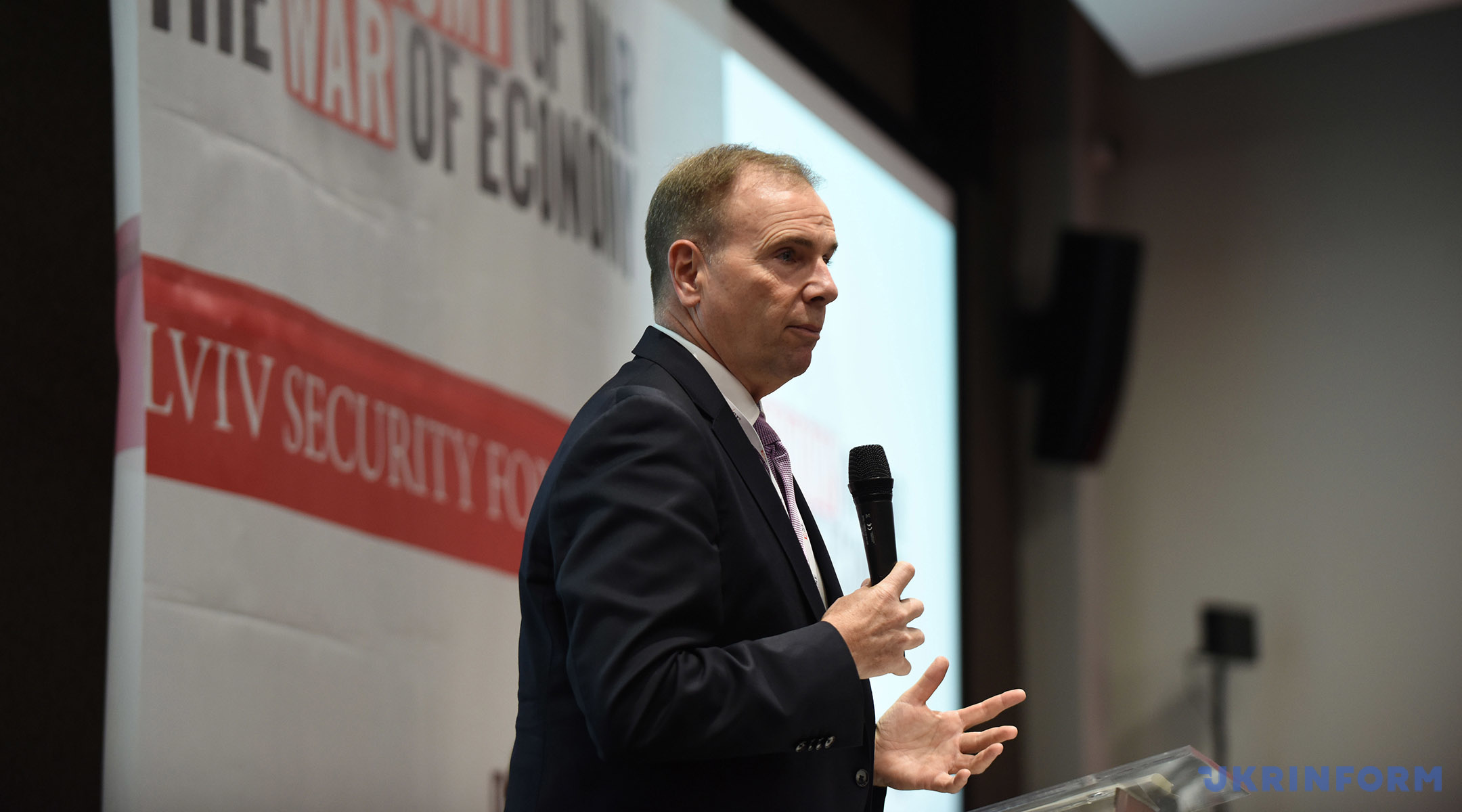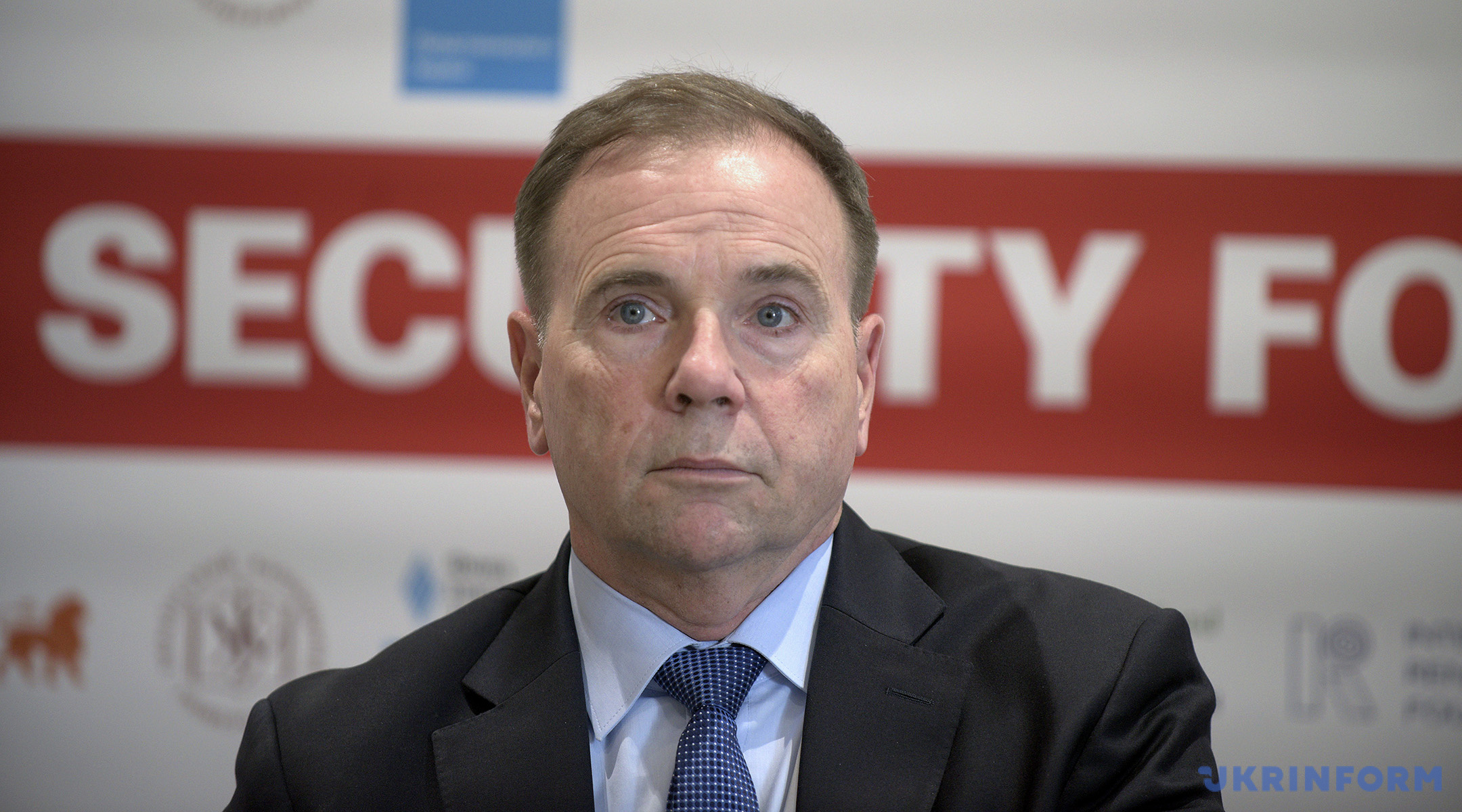From 2014 to 2017, Lieutenant General Ben Hodges was Commander U.S. Eucopean Command and is currently a military expert with CEPA, Center for European Policy Analysis. He is well aware of military capabilities of NATO allies and those of the Russian military machine opposing them. He has repeatedly spoken out in support of Ukraine and remain deeply convinced of the Kremlin's aggressive intentions. Ben Hodges recently visited Ukraine as part of a small delegation that met with the president, legislators, a number of ministers, and the country's military. Recently, the general spoke with Tetiana Popova via videoconference. Ukrinform provides the full text of the interview.
- POPOVA: What can you say about the supply of such amounts of NLAWs and Javelins? What kind of weapons are these and why so many of them are now being delivered to Ukraine?
- HODGES: So, the decision by the Biden administration to continue delivering Javelin and tanks missiles. I think is an important decision. This is a real capability, it's the same weapon that we use. It's the best weapon that a soldier can carry and employ. So, this is a significant capability and to have so many will give Ukrainian soldiers a very good ability to stop Russian tanks, Russian armored vehicles and of course Russian commanders will be aware of this. It will cause them to be very concerned especially if they go into villages or cities or through the close areas. This is a good weapon. And I think not only does it give you soldiers a good capability it also sends a signal - The United States is committed to helping our Ukrainian friends. And it's a signal to the Kremlin that we are committed to helping our Ukrainian friends with real capability. I would also like to see us give more air defense capability to Ukraine. I’m concerned about Russian drones, Russian helicopters. So the Stinger is what we use it's a very good fired what one man can use it without too much training. I would like to see us give more of those. So far, the United States has authorized Latvia to provide some of its Stingers. I’m not sure why we are not providing them from U.S. stocks but it could be a matter of days, we just don't have many right now. So at least in the interim, Latvia is providing some of the ones that they have. But for sure me and several other Americans that recently visited Kyiv, particularly general Breedlove, former supreme allied commander, have strongly advocated for providing the latest generation of Stinger to Ukrainian Armed Forces. I do know that Poland is also stepping forward to provide certain air defense capabilities but I just don't know the details of that.

- POPOVA: What is this new UK-Poland-Ukraine alliance? The Russians have already managed to call it the "New UPA". They are, of course, categorically against it. And what exactly does it give to Ukraine and give to other members of this union?
- HODGES: I am in favor of anything that brings more support for Ukraine. Whether it's financial support, which I think is necessary, intelligence sharing, equipment, ammunition. Certainly, UK and Poland have capabilities that will help Ukraine. It's important that UK is supportive also because there is so much Russian money tied up in the UK in real estate. So I think this will also help shine light on this where Russians have buried so much money in London real estate, and hopefully the government in UK will get serious about dirty money and exposing this. This will be an important way to put pressure on the oligarchs that are keeping Putin in power.
- POPOVA: Thanks, General. You answered quite extensively about the anti-tank systems, touched on the Stingers. But after all, the Stingers and the Polish Peruns / Groms, which they also began to supply, have an altitude cap, I believe, of about 5 km. And what should be done, for example, with missiles or bombers flying at a higher altitude? I spoke with Lieutenant General Romanenko, he said that Ukraine lacks sufficient protection in the air. What can you say about it?
- HODGES: You have identified correctly that there is a threat from Russia for missiles and things other than just helicopters and drones. But the systems that are necessary to knock down missiles and high-altitude fast-moving aircraft – these are very sophisticated systems that take months of training. So this is not something that you can just hand over like a Stinger or a Javelin. It's much larger. It requires a lot more training. And so the group that I am with also advocates for a longer-term strategy to provide these kinds of capabilities to Ukraine as well. But again, this is not something you will be able to employ next week or next month. First of all we would have to take it from American units. I mean we only have one Patriot battalion in all of Europe. So we would have to find where we would get this from and then deliver, and then go through all the training. This is part of the longer-term strategy that we need to be doing, I absolutely agree with that. But there's not some anti-missile system. I don't think anybody has it that could just be handed over right now and Ukrainian forces be able to employ it right now. So there are near-term, immediate, and longer-term capabilities that are being provided. I have always been impressed with Ukrainian soldiers, how fast they learn. This is not about whether they are able to adapt to sophisticated equipment – of course, they are. It's the reality of whether it's American, Ukrainian, British, German, whatever – it takes months to learn how to properly use a Patriot system or similar type capabilities. You have to have radar, multiple radars. It's not just a rocket that shoots down another rocket.

- POPOVA: How do you assess today's diplomatic correspondence? From the Russian side, there were ultimatums. The U.S. and NATO responded and then Russia said something in response. Why was it necessary for Russia to put forward such ultimatums, in your opinion?
- HODGES: Well of course for the United States and our friends, diplomacy is the route that we prefer. But diplomacy has to be backed up by the threat of sanctions. It has to be backed up by strong military capability. Also, we have to keep all our allies together. It's not just the United States, it's everybody else. The demands from the Kremlin – not only were they outrageous and ridiculous. I believe the Kremlin knew that we were going to say “no.” And so they did this first of all to stake out their extreme position to start negotiations. But also I think to communicate back to their own population that "look, we tried but the West refuse to negotiate, refuse to accept our very reasonable demands." And so that potentially becomes a pretext. I think that's why they did it. Now I am sure that our diplomats are going to continue working in coordination with the Ukrainian diplomats and other Europeans to try and find a solution that protects and respects Ukrainian sovereignty and protects and respects European values and European borders and hopefully can avoid a conflict. But now I certainly would never be in favor of any diplomatic effort that betrayed Ukrainian sovereignty.
- POPOVA: Why do the Russians blame the Americans and the West in general for all this tension that has now arisen? They say that it is the West that is waging an information war against Russia and that in fact they are not going to attack Ukraine. At the same time, 130,000-150,000 troops are still moving along with equipment near the Ukrainian border from different sides, exercises are being held in Belarus. But nevertheless, they say that this is an information war on the part of America. Why is that?
- HODGES: I don't believe anything that comes from the Russian ministry of foreign affairs. I mean Bild and so many other newspapers have produced maps showing arrows coming in from all different directions. Everybody who’s paying attention now, more people understand Ukrainian geography now better than ever before. We're all interested, which is a good thing, but people are speculating, some are very professional, some not so professional, trying to anticipate what would a Russian attack look like. Of the key is that Ukraine has to continue doing everything it's doing to be prepared, for the soldiers to be ready, the population to be ready, for Ukrainian cyber networks to be protected, be prepared for sabotage, the coastline and the major seaports like Odessa should be protected. But also people should not panic. I think president Zelensky is correct when he says “look, part of what Russia is trying to do is to ruin our economy”. So the threat of attack causes people to do things that they would not normally do, and that damages the economy. So I think what I would really like to see, is continued effort by the United States and the allies, like we're seeing now, delivering capability, being strong in diplomacy, looking for alternative sources of gas to help our European allies stay tough. But Ukrainian leaders, the president, prime minister, ministers, members of the Rada, to go see for themselves preparations on the border, go to Odesa, and see what preparations are being made, go to Mariupol to see what preparations are being made, go to the border with Belarus see what preparations are being made. And I think that will help lower anxiety for people when they see that their leaders are personally involved on checking to make sure that things are in order.

- POPOVA: General, you were recently in Kyiv, came here and spoke together with four former U.S. ambassadors, General Breedlove. What event was that, a week ago?
- HODGES: This was a delegation of five former ambassadors. Several of them had been ambassador to Ukraine, you know, Ivanovic, Taylor, but and then general Breedlove and me, and also Melinda Haring and Benjamin Haddad from Atlantic Council. The host was the Yalta European strategy and Viktor Pinchuk Foundation. The main event was Monday afternoon and there were over a hundred Ukrainians there, journalists. But anyway, our purpose for going was not just that event but also to convey our support for Ukraine, feel the temperature of what's going on have a feeling for the actual situation. So we had meetings with the ministers, several different members of the Rada, President Zelensky, talked to Ukrainian officers. It was productive certainly, and my understanding of what's going on is much better. And now we are able to be better advocates for Ukraine.
im
